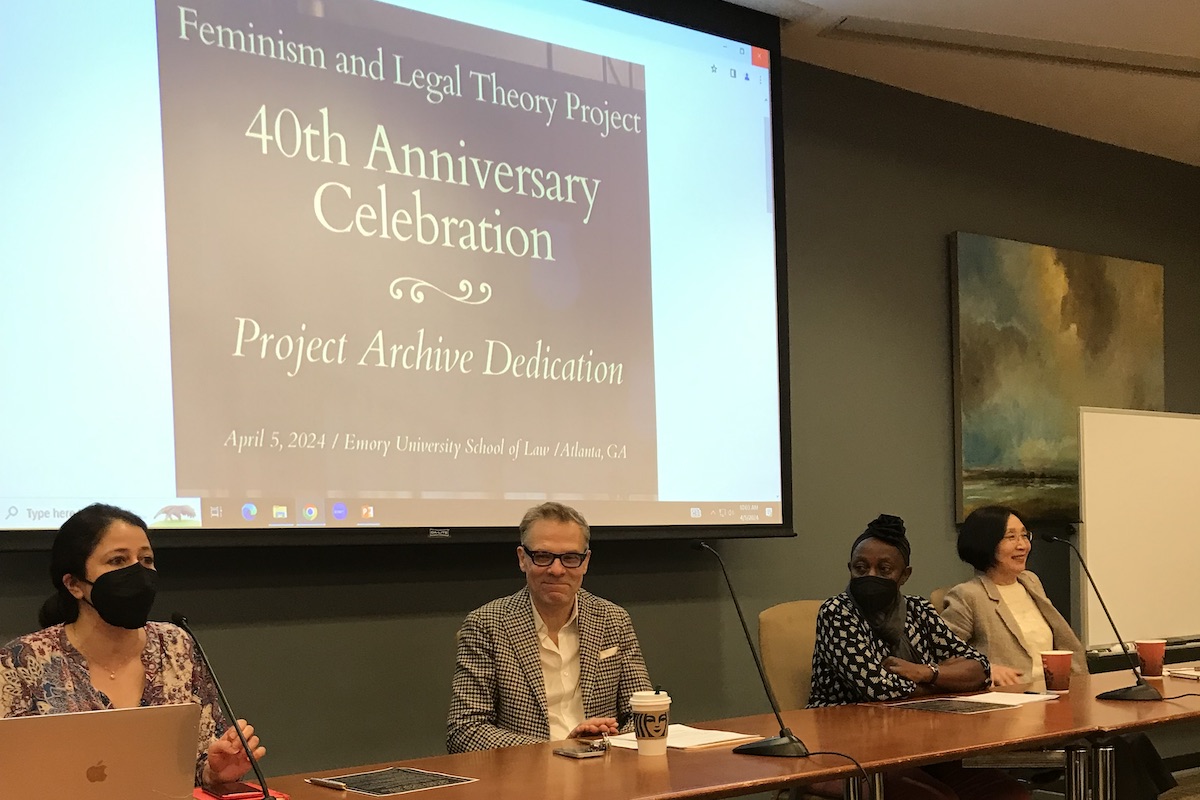Emory Law honors Fineman’s legacy and dedicates FLT archive

On April 5, 2024, Emory University School of Law celebrated the 40th anniversary of the Feminism and Legal Theory Project (FLT) with a day of panels featuring prominent international and US feminist legal theorists.
The event culminated in the dedication of the FLT archive in Emory University’s Hugh F. MacMillan Law Library. Initiated in 1984 by Martha A. Fineman, Robert W. Woodruff Professor of Law, the Feminism and Legal Theory Project has remained steadfast in its interdisciplinary exploration of the intricate interplay between law and culture. Organizers underscored the project’s enduring commitment to scrutinizing how these forces influence societal norms, policies, and practices pertaining to gender, while also delving into intersecting issues of age, race, class, ability, and sexuality.
The project transitioned to Emory Law when Martha A. Fineman joined the school two decades later. Fineman not only spearheaded the FLT initiative but also established a robust visiting scholars program. This program serves as a conduit for fostering collaboration among academics worldwide, further amplifying Emory’s scholarly impact both domestically and internationally. The ceremony commenced with a series of engaging panels, where feminist scholars shared personal insights into the transformative journey of the FLT project and its profound influence on their scholarly trajectories. The culmination of the event was in MacMillan Law Library, where a poignant dedication ceremony honored the newly unveiled FLT archive.
Reflecting on the significance of the archive, Fineman remarked on its rich repository of working papers and workshop materials. These resources chronicle pivotal moments in the realms of social transformation and policy evolution, particularly in the aftermath of landmark movements such as gender equality and no-fault divorce. Additionally, the archive houses a treasure trove of recordings and videos capturing the dynamic dialogues and evolving debates surrounding these seminal issues, making it an invaluable resource for scholars engaged in the study of intellectual history and critical thought.
Email the Editor

